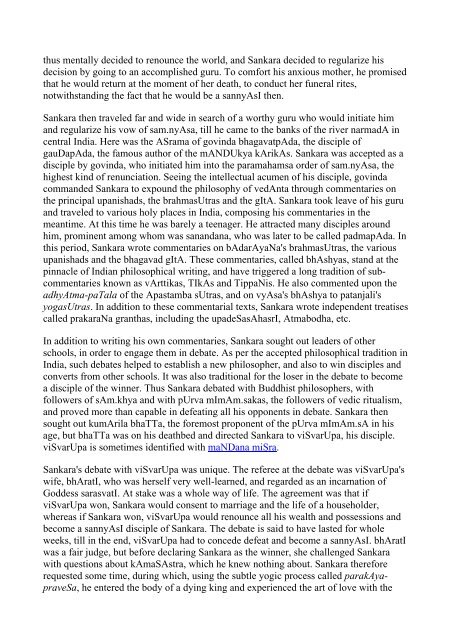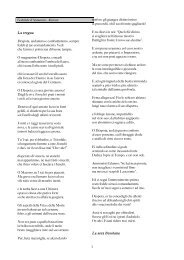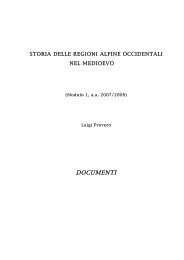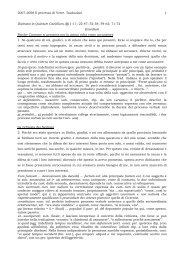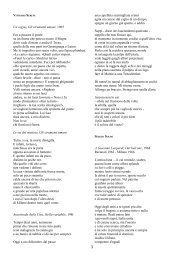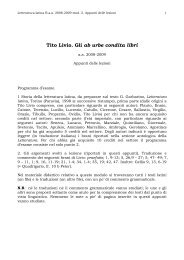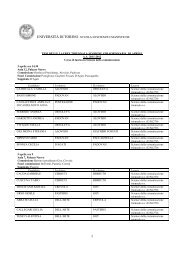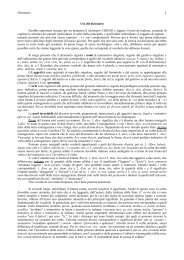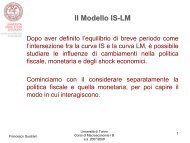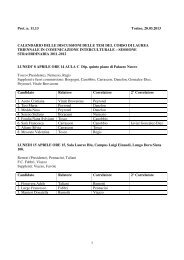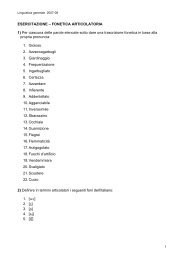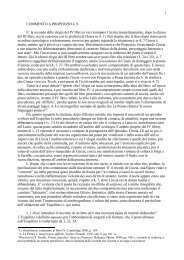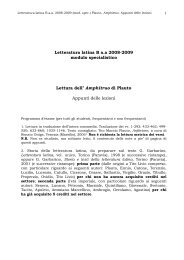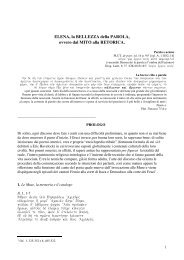ajAti vAda
ajAti vAda
ajAti vAda
Create successful ePaper yourself
Turn your PDF publications into a flip-book with our unique Google optimized e-Paper software.
thus mentally decided to renounce the world, and Sankara decided to regularize his<br />
decision by going to an accomplished guru. To comfort his anxious mother, he promised<br />
that he would return at the moment of her death, to conduct her funeral rites,<br />
notwithstanding the fact that he would be a sannyAsI then.<br />
Sankara then traveled far and wide in search of a worthy guru who would initiate him<br />
and regularize his vow of sam.nyAsa, till he came to the banks of the river narmadA in<br />
central India. Here was the ASrama of govinda bhagavatpAda, the disciple of<br />
gauDapAda, the famous author of the mANDUkya kArikAs. Sankara was accepted as a<br />
disciple by govinda, who initiated him into the paramahamsa order of sam.nyAsa, the<br />
highest kind of renunciation. Seeing the intellectual acumen of his disciple, govinda<br />
commanded Sankara to expound the philosophy of vedAnta through commentaries on<br />
the principal upanishads, the brahmasUtras and the gItA. Sankara took leave of his guru<br />
and traveled to various holy places in India, composing his commentaries in the<br />
meantime. At this time he was barely a teenager. He attracted many disciples around<br />
him, prominent among whom was sanandana, who was later to be called padmapAda. In<br />
this period, Sankara wrote commentaries on bAdarAyaNa's brahmasUtras, the various<br />
upanishads and the bhagavad gItA. These commentaries, called bhAshyas, stand at the<br />
pinnacle of Indian philosophical writing, and have triggered a long tradition of subcommentaries<br />
known as vArttikas, TIkAs and TippaNis. He also commented upon the<br />
adhyAtma-paTala of the Apastamba sUtras, and on vyAsa's bhAshya to patanjali's<br />
yogasUtras. In addition to these commentarial texts, Sankara wrote independent treatises<br />
called prakaraNa granthas, including the upadeSasAhasrI, Atmabodha, etc.<br />
In addition to writing his own commentaries, Sankara sought out leaders of other<br />
schools, in order to engage them in debate. As per the accepted philosophical tradition in<br />
India, such debates helped to establish a new philosopher, and also to win disciples and<br />
converts from other schools. It was also traditional for the loser in the debate to become<br />
a disciple of the winner. Thus Sankara debated with Buddhist philosophers, with<br />
followers of sAm.khya and with pUrva mImAm.sakas, the followers of vedic ritualism,<br />
and proved more than capable in defeating all his opponents in debate. Sankara then<br />
sought out kumArila bhaTTa, the foremost proponent of the pUrva mImAm.sA in his<br />
age, but bhaTTa was on his deathbed and directed Sankara to viSvarUpa, his disciple.<br />
viSvarUpa is sometimes identified with maNDana miSra.<br />
Sankara's debate with viSvarUpa was unique. The referee at the debate was viSvarUpa's<br />
wife, bhAratI, who was herself very well-learned, and regarded as an incarnation of<br />
Goddess sarasvatI. At stake was a whole way of life. The agreement was that if<br />
viSvarUpa won, Sankara would consent to marriage and the life of a householder,<br />
whereas if Sankara won, viSvarUpa would renounce all his wealth and possessions and<br />
become a sannyAsI disciple of Sankara. The debate is said to have lasted for whole<br />
weeks, till in the end, viSvarUpa had to concede defeat and become a sannyAsI. bhAratI<br />
was a fair judge, but before declaring Sankara as the winner, she challenged Sankara<br />
with questions about kAmaSAstra, which he knew nothing about. Sankara therefore<br />
requested some time, during which, using the subtle yogic process called parakAyapraveSa,<br />
he entered the body of a dying king and experienced the art of love with the


